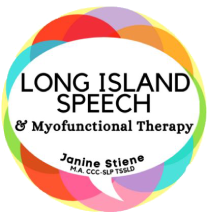Blog
Dementia
“Dementia” is a term that most people are familiar with, however, there are a lot of common misconceptions about it. For example, many people believe that dementia is a disease or a disorder, when in fact it is not a specific disease. It is actually an umbrella term used to describe a group of symptoms related to memory loss and cognitive impairment. Below you will find an overview of dementia, including symptoms, causes, impact on speech and language, the role of the speech-language pathologist in treatment, as well as some tips for communicating with individuals with dementia.
Overview
- A group of symptoms related to memory loss and cognitive impairment
- Affects the brain and damages neuronal synapses
- Damage impedes communication between brain cells and results in worsening of cognitive, behavioral, motor control, and other functions
- Most types of dementia are degenerative
- Alzheimer’s disease- most common & well-studied cause of dementia
- Affecting up to 70% of those diagnosed with dementia
Signs & Symptoms
- Confusion
- Getting lost in familiar areas
- Problems handling personal affairs
- Personality changes
- Depression
- Significant memory loss
- Difficulty following simple directions
- Decreasing communication skills
- Difficulty swallowing
- By the final stages, inability to feed themselves, walk independently, or speak intelligibly
Causes
- Alzheimer’s disease
- Multiple small strokes (multi-infarct dementia)
- Parkinson’s disease
- Huntington’s disease
- Lewy body dementia
- Frontotemporal degeneration
- Vascular dementia
- Mixed dementia
- Traumatic brain injury
- Creutzfeldt-Jakob disease
- AIDS-induced dementia
- Neurosyphilis
Reversible Causes
- Normal pressure hydrocephalus
- Wernicke-Korsakoff syndrome
- Vitamin B-12 deficiency
- Subdural hematomas
- Thyroid disease
- Tumors
- Toxic reactions to drugs or chemicals
Impact on Speech
- Apraxia and dysarthria are common impairments in individuals with dementia
- Difficulty in producing speech sounds
- Slow speech rate
- Impaired rhythm and prosody of speech
- Inconsistent speech errors
- Mumbled speech
- Altered speed of speech
- Reduced vocal intensity
- Monotone voice
- Changes of intonation & articulatory imprecision
- Frequent pauses in speech
- Difficulty understanding speech
Impact on Language
- Calling things by the wrong name
- Irrelevant use of words and their meaning
- Inability to convey ideas
- Inappropriate use of grammatical forms
- Lack of semantic language functions
- Lack of pragmatic language functions
Impact on Cognition
- Memory loss, which is usually noticed by someone close to the individual
- Difficulty communicating or finding words
- Difficulty reasoning or problem-solving
- Difficulty handling complex tasks
- Difficulty with planning and organizing
- Difficulty with coordination and motor functions
- Confusion and disorientation
Psychological Changes
- Personality changes
- Depression
- Anxiety
- Inappropriate behavior
- Paranoia
- Agitation
- Hallucinations
Social Impact
- Lack of interest in socializing
- Decreased ability to speak to others
- Increased socially inappropriate behavior
Role of the Speech-Language Pathologist
- SLPs play a central role in screening, assessment, diagnosis & treatment
- They manage cognitive, communication, and swallowing deficits
- They help individuals function at the highest level of independence
- They treat cognitive aspects of communication:
- Attention
- Memory
- Sequencing
- Problem solving
- Executive functioning
- They provide strategies to preserve communication & cognitive functioning for as long as possible
- They provide compensatory swallow techniques and diet modifications
- They help with planning, sequencing & coordination of muscles used for speech
- They target breath support
- Sometimes they implement augmentative and alternative communication (AAC)
- They preserve quality of life for as long as possible
Strategies to Better Communicate with an Individual with Dementia
- Repeat key information when talking to help maintain focus
- Give choices rather than asking open-ended questions
- keep information and questions short and simple
- Use written cues for activities
- Remind the individual about appointments or to take medications
- Family and caregivers may want to attend support groups to learn how others cope with the stresses of caring for someone with dementia or using adult daycares or respite care services to help prevent caregiver burnout
Mary C. MA CF-SLP, TSSLD
References
American Speech-Language-Hearing Association. (2017) Dementia. Retrieved from
https://www.asha.org/public/speech/disorders/dementia.htm
Healthcare Brands. (2017) What is Dementia? Retrieved from https://www.dementia.org/




